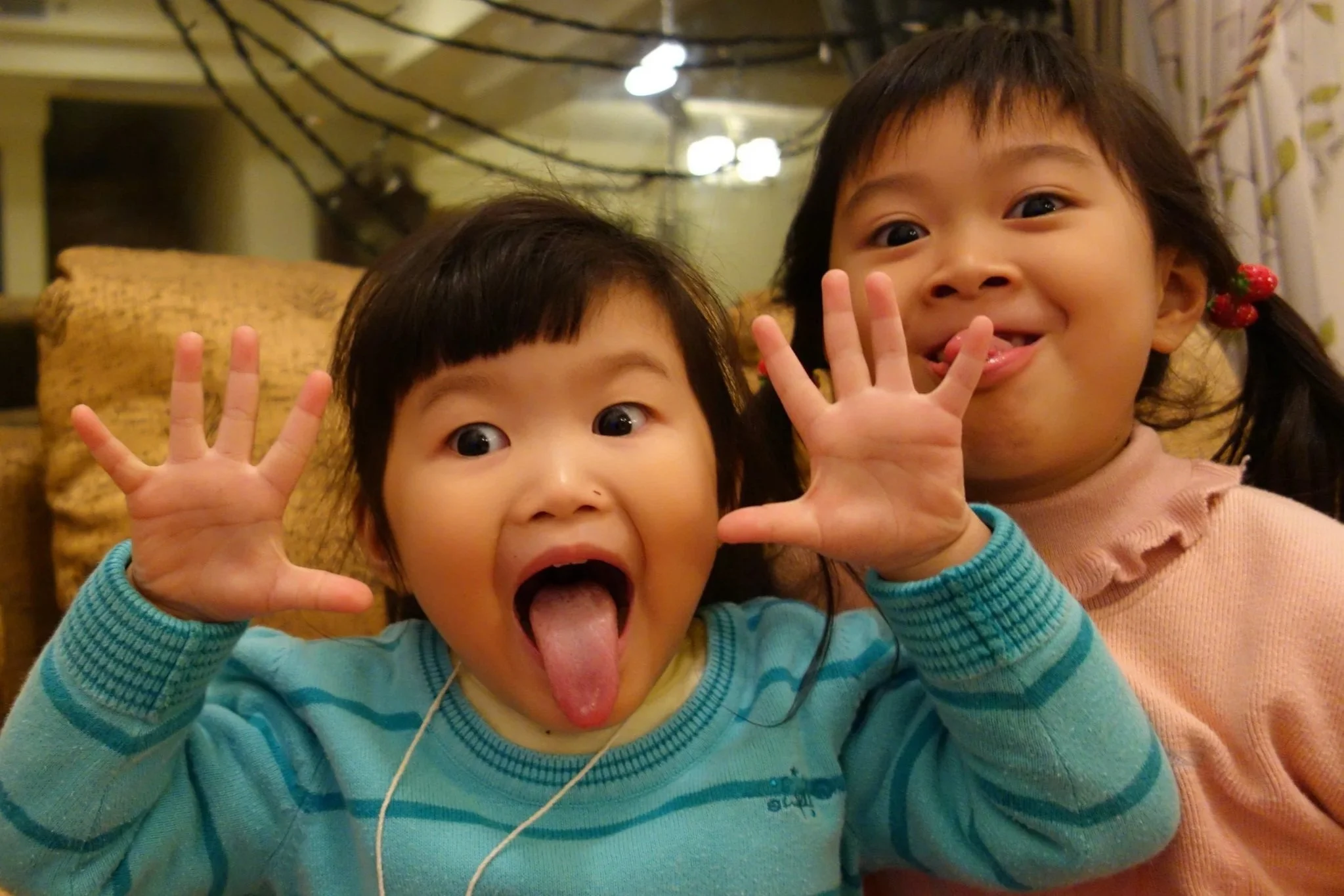
Why Are We Launching Articulation Groups?(and Why We’re Starting with /L/)
Traditional one-on-one speech therapy is wonderful and necessary for some— but it isn’t always the best format for every child or every sound. It can also be expensive and feel isolated vs immersive.

Why the Holidays Are a Perfect Time to Practice the Crucial Executive Function Skill of Perspective Taking (and How to Do It)
If your child struggles with understanding others’ viewpoints, big emotional reactions, or flexible thinking, these moments can become powerful learning opportunities.

10 Things We Wish We Could Tell Every Client
As speech-language pathologists, we work with clients across the lifespan — from toddlers discovering their first words to adults rebuilding or improving communication skills. No matter the age, there are some universal truths about communication, progress, and the therapy process that we wish every client (and every family) could fully hear and trust.

Am I Burnt Out Already?!
As a speech-language pathologist (and parent, partner, friend, and human), I see firsthand how stress and burnout can show up this time of year — both in the families I support and in myself. Personally, I find it so hard to “practice what I preach” this time of year. I am starting now, before December gets too far gone and I thought it would be helpful to share some of these thoughts and strategies for all of us to keep in mind this holiday season.

Reconnecting with Our Adult Clients: Support at Every Age and Stage
At The Speech & Language Center, our work spans every stage of life — from early language development to adult communication and cognitive support. Adults come to us for many reasons — sometimes after a major life change, other times simply to improve clarity, confidence, or connection.

The Benefits of Bilingualism
The benefits of bilingualism go far beyond communication. The brain of a bilingual child is constantly practicing flexibility — switching between languages, organizing sounds, and choosing words depending on the situation. These “mental workouts” build the foundation for strong executive functioning skills, such as attention, memory, and problem-solving.

Where My Therapist Self Meets My Mom Self
The truth is, the “therapist me” and the “mom me” are both trying to do the same thing — help a child feel understood, safe, supported and capable. But one of them gets to observe from a calm, supportive distance, and the other is right in the messy middle of it.

Avoiding the Power Struggle
As both a mom and a speech-language pathologist, I’ve been there so many times. I am not proud to admit that even this morning I ended up in a back-and-forth tornado of emotions with my four-year-old over carrying her backpack to the car.
The truth is, young kids are wired to seek control and independence. Power struggles are their way of saying, “I want a say in this, too.” I started to beat myself up about this interaction and now I’m writing a blog about it with the intention of learning, teaching, and doing better next time around (because we all know, we will be right back there again soon).

Working on Dyslexia and Dysgraphia in Speech Therapy
As SLPs, we support children with dyslexia by strengthening the language foundations of reading.

CO-WRITTEN BY CHATGPT
ChatGPT isn’t writing for me—it is writing with me. It’s helping me communicate more effectively in my writing. In the same way, the strategies we use in therapy aren’t doing the work for our clients, they are giving them the tools to succeed on their own.

Getting Back on Track: A Parent’s Guide to Tackling Executive Functioning Challenges
The start of a new school year can be exciting—and also stressful—especially for kids who struggle with executive functioning skills. These skills help kids plan, organize, manage time, and regulate their behavior. If your child has trouble starting assignments, staying focused, or keeping track of materials.

When Should I Be Concerned?
At The Speech & Language Center, we help families every day who are asking the same questions. Here’s what you need to know about speech sound development—and when it might be time to check in with a speech-language pathologist.

Speech Therapy & Insurance: What You Need to Know About Reimbursement
We’re a small, therapist-run practice focused on individualized care. By staying out-of-network, we’re able to provide flexible, high-quality services tailored to each client’s unique needs—without jumping through insurance red tape or limiting your access to the care your child deserves.
That said, we highly recommend that families look into reimbursement options. You pay for those benefits—why not use them?

Speech & Language Games We Love to Play on Trips
Whether you're headed to the beach, the mountains, or Grandma’s house, these simple games make car time and travel meaningful—and fun. Safe travels and have fun connecting with each other!

How to Support Your Child’s Language Skills at Home: 5 Simple, Everyday Strategies
The best way to build language skills is by creating a language-rich environment—one filled with back-and-forth interactions, meaningful conversation, and plenty of play. Remember, it’s not about perfection. It’s about being present, tuning in, and talking with your child every day.

Why Your Child’s Speech Sounds Are Still Developing—And When to Be Concerned
Understanding speech sound development and when to seek help
It can be both adorable and concerning when a child says “wabbit” instead of “rabbit” or “pane” instead of “plane.” As a parent, it’s natural to wonder: Is this just part of normal development—or something we should address with speech therapy?
The truth is that speech sound development is a gradual process—and some mispronunciations are completely age-appropriate.

Spring Break Survival
If you’re like me, you start the week with visions of nature walks, crafts, and baking projects… and quickly find yourself negotiating screen time limits while Googling “free indoor activities near me.”

Why Babble & Books?
These sessions are designed for kids ages 1–4, and every detail—from the books we choose to the sounds we explore—is meant to support early speech and language development in a fun, natural way.

Why does everyone love speech?
When people hear "speech therapy," they might picture flashcards and repetitive drills. But in reality, speech therapy is interactive, engaging, and fun! At The Speech & Language Center, we believe that learning only happens when kids (and adults) are motivated, engaged, and enjoying the process.

Rethinking ‘Normal’: Am I weird? Yes, probably.
As a speech-language pathologist — and someone who thinks a little differently myself — I've come to appreciate just how beautifully unique our brains can be.
At The Speech & Language Center, we celebrate those differences by meeting each person where they are and building on their strengths. Whether or not someone has a diagnosis, we believe everyone deserves support that honors how they think, learn, and connect.

